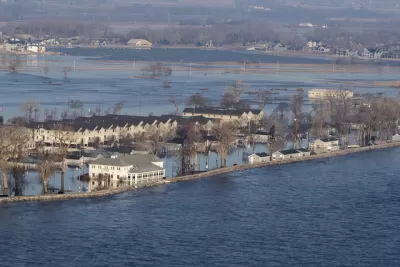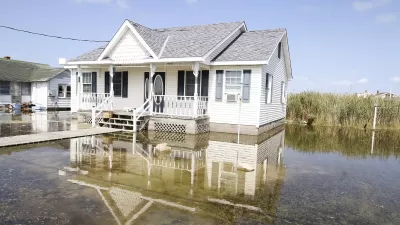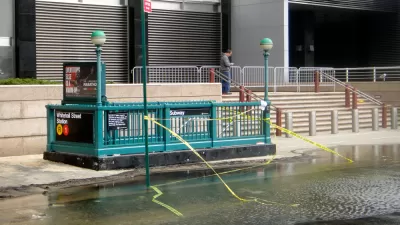The floodwaters still haven't subsided in parts of the Midwest, and lessons about climate change, extreme weather and proactive planning are badly needed to avoid similar catastrophes in the future.

Marshall Shepherd convened a panel of experts to examine lessons from the flooding that has ravaged the Midwest over the past week. Here's the lineup of experts:
- Brian Bledsoe, University of Georgia Athletic Association Professor of Resilient Infrastructure.
- Barb Mayes-Boustead, National Weather Service Meteorologist Instructor.
- Forbes Tompkins, Officer, Flood Prepared Communities, The Pew Charitable Trusts.
- Witold F. Krajewski, Rose & Joseph Summers Chair in Water Resources Engineering and Director, Iowa Flood Center.
- Mike Chesterfield, Director of Weather Presentation, The Weather Channel.
- Ken Dewey, Regional Climatologist, University of Nebraska.
- Steve Bowen, Director and Meteorologist, Aon.
Among the big points made in the analysis reported by Shepherd: the bomb cyclone was a "perfect storm" in its confluence of tragic events; other environmental factors played a role, like snowpack; and infrastructure played a role:
Most of the panel agreed that a combination of weather, water, climate, and infrastructure failure led to the disaster. Mayes-Bousted paraphrased a message from the U.S. Army Corp of Engineers that "all of the engineering around the Missouri River and its tributaries is designed to keep the majority of floods at bay, but not the most extreme of events."
In addition to discussion on other aspects of the disaster, the panel also made recommendations for how to move forward and better prepare for future extreme weather events. The state of Iowa's response to floods in 2008 is offered as one example to emulate.
A separate article by Gabriel H. Sanchez provides a photo series to illustrate the extent of the devastation.
FULL STORY: Four Lessons From 'Bomb Cyclone' Flooding In The Great Plains

Planetizen Federal Action Tracker
A weekly monitor of how Trump’s orders and actions are impacting planners and planning in America.

Chicago’s Ghost Rails
Just beneath the surface of the modern city lie the remnants of its expansive early 20th-century streetcar system.

San Antonio and Austin are Fusing Into one Massive Megaregion
The region spanning the two central Texas cities is growing fast, posing challenges for local infrastructure and water supplies.

Since Zion's Shuttles Went Electric “The Smog is Gone”
Visitors to Zion National Park can enjoy the canyon via the nation’s first fully electric park shuttle system.

Trump Distributing DOT Safety Funds at 1/10 Rate of Biden
Funds for Safe Streets and other transportation safety and equity programs are being held up by administrative reviews and conflicts with the Trump administration’s priorities.

German Cities Subsidize Taxis for Women Amid Wave of Violence
Free or low-cost taxi rides can help women navigate cities more safely, but critics say the programs don't address the root causes of violence against women.
Urban Design for Planners 1: Software Tools
This six-course series explores essential urban design concepts using open source software and equips planners with the tools they need to participate fully in the urban design process.
Planning for Universal Design
Learn the tools for implementing Universal Design in planning regulations.
planning NEXT
Appalachian Highlands Housing Partners
Mpact (founded as Rail~Volution)
City of Camden Redevelopment Agency
City of Astoria
City of Portland
City of Laramie





























